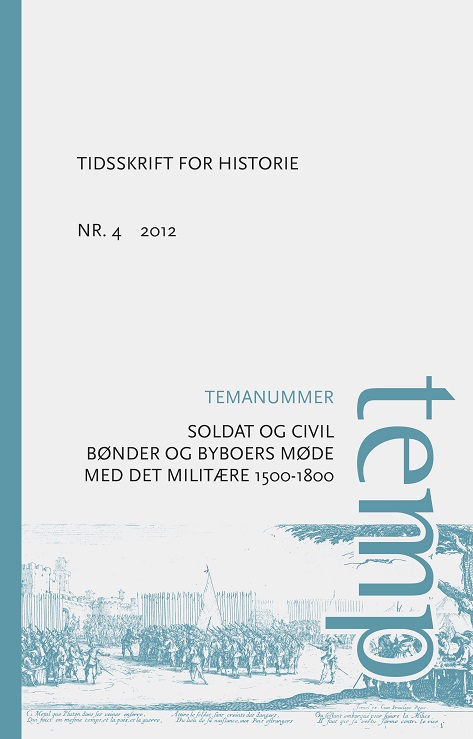EN IFRÅGASATT STÅNDSORDNING – BONDEBEVÄPNING, PRIVILEGIER OCH REVOLTER SOCIAL OCH POLITISK STATUS I GRÄNSREGIONEN MELLAN DANMARK OCH SVERIGE KRING 1500
Nøgleord:
soldat og civil, bondebeväpning, privilegier, Danmark, Sverige, 1500Resumé
ABSTRACT
A questioned Order of Estates – Peasants in arms, privileges and revolts: social and political status in the border region between Denmark and Sweden around 1500.
This article investigates the relation between conceptions of status and processes of militarization of peasants in the medieval and early-modern society. In an initial overview we see how many revolts in western Europe in late Middle Ages were connected to an increased military participation of peasant groups. After 1500 similar processes can be found in the eastern European frontier regions. Economic rights, tax privileges, political and legal competences, a “peasant gentry” status, anti-aristocratic sentiments were issues of status which often were raised. These patterns are also found in the border region between Denmark and Sweden around 1500. The peasantry was drawn into recurrent levies, and tax exemptions developed. In several larger rebellions the issues of the right to carry arms, of taxes/exemptions and anti-aristocratism were central, and several political/legal competences of the peasantry were temporarily strengthened. The tensions regarding status around 1500 could involve material manifestations of status as well. In at least one revolt in the region, also the right to lavish buildings and clothing was defended. In many ways revolts were about status, and military participation could in some contexts increase the status of peasant groups, but we also have to understand status in a broader way.
Downloads
Publiceret
Citation/Eksport
Nummer
Sektion
Licens
Copyright temp - tidsskrift for historie og forfatterne.
Artikler publiceret i Temp må citeres, downloades og videresendes for ikke-kommerciel brug, under forudsætning af normal akademisk reference til forfatter(e) samt tidsskrift, årgang, nummer og sider. Artiklerne må kun genudgives med eksplicit tilladelse fra forfatter(e) og tidsskriftet.





